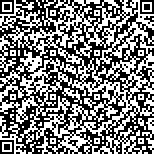| 引用本文: |
张双,李骁群,李江林,赵瑞珍,唐启盛.基于网络药理学和实验验证探讨颐脑解郁方对抑郁症促炎细胞因子的影响[J].湖南中医药大学学报,2023,43(3):457-464[点击复制] |
|
| |
|
|
| 本文已被:浏览 2860次 下载 1762次 |
| 基于网络药理学和实验验证探讨颐脑解郁方对抑郁症促炎细胞因子的影响 |
| 张双,李骁群,李江林,赵瑞珍,唐启盛 |
| (北京中医药大学, 北京 100029;北京中医药大学第三附属医院治未病中心, 北京 100029) |
| 摘要: |
| 目的 运用网络药理学方法探讨颐脑解郁方对抑郁症促炎细胞因子的调控作用,并进行实验验证。方法 首先通过TCMSP、HERB数据库查找颐脑解郁方组成药物的主要活性成分,使用SwissTargetPrediction平台进行靶点预测;利用GeneCards数据库筛选抑郁症、炎症相关疾病基因;药物与疾病靶点的交集靶点为颐脑解郁方的潜在调控靶点,在Cytoscape 3.8.0软件中构建药物-活性成分-潜在调控靶点-疾病网络,应用CytoNCA插件计算度值,筛选重要的活性成分;利用STRING数据库构建潜在调控靶点的蛋白质-蛋白质相互作用(protein-protein interaction, PPI)网络,得到核心蛋白,之后利用R语言对潜在调控靶点进行GO与KEGG富集分析,绘制条形图和点图。最终选取较重要的交集核心蛋白进行实验验证,动物实验选用SPF级雄性大鼠,随机分为正常组、模型组、颐脑解郁方组(中药组)和盐酸氟西汀组(西药组),采用慢性不可预知温和刺激(chronic unpredictable mild stress, CUMS)联合孤养法复制抑郁模型,使用旷场实验评估大鼠的抑郁样行为,最后采集各组大鼠的血清进行指标检测。结果 共筛选出颐脑解郁方有效成分272种,作用靶点共计1167个,抑郁症、炎症相关靶点93个;颐脑解郁方的潜在调控靶点35个,较重要的活性成分为槲皮素和咖啡酸,核心蛋白为白介素-6(interleukin 6, IL-6)、干扰素(interferon, TNF)、Toll样受体4(Toll-like receptor 4, TLR4)、白介素-1β(interleukin 1β, IL-1β)等,GO富集和KEGG富集分析结果显示颐脑解郁方具有多靶点、多通路的特点,其中核因子κB(nuclear factor kappa-B, NF-κB)通路较为重要;动物实验发现颐脑解郁方能够降低抑郁大鼠血清中IL-6、TNF-α、IL-1β水平(P<0.05)。结论 颐脑解郁方可能通过降低血清中促炎细胞因子水平发挥抗抑郁的作用,是多种成分、多种通路和靶点共同作用的结果。 |
| 关键词: 颐脑解郁方 抑郁症 促炎细胞因子 网络药理学 实验验证 大鼠 |
| DOI:10.3969/j.issn.1674-070X.2023.03.014 |
| 投稿时间:2022-10-27 |
| 基金项目:中央高校基本科研业务费专项重点攻关项目(2020-JYB-ZDGG-144-3)。 |
|
| Effects of Yinao Jieyu Formula on pro-inflammatory factors for depression based on network pharmacology and experimental verification |
| ZHANG Shuang,LI Xiaoqun,LI Jianglin,ZHAO Ruizhen,TANG Qisheng |
| (Beijing University of Chinese Medicine, Beijing 100029, China;Preventive and Treatment Center, The Third Hospital of Beijing University of Chinese Medicine, Beijing 100029, China) |
| Abstract: |
| Objective To explore the effects of Yinao Jieyu Formula (YNJYF) on pro-inflammatory factors for depression based on network pharmacology and experimental verification. Methods The ingredients of YNJYF were obtained from TCMSP and HERB databases, and the targets were detected by SwissTargetPrediction. The genes related to depression and inflammation were obtained from GeneCards database. Intersection of ingredients and disease are the potential targets of YNJYF. The network of herbs, ingredients, potential targets and diseases was built by Cytoscape 3.8.0 software. And the degree was calculated by CytoNCA to find the important active ingredients. Then the protein-protein interaction (PPI) network about the potential targets through STRING database was constructed to obtain the core proteins, and the potential targets were analyzed by GO and KEGG with the R language, then the barplot and dotplot were drawn. Finally, the more important core proteins were selected to verify by experiment. SPF male rats were randomly divided into normal group, model group, YNJYF group (Chinese medicine group) and fluoxetine group (western medicine group). Chronic unpredictable mild stress (CUMS) and solitary rearing were used to replicate the depression model, and the depressive-like behavior was evaluated by open field experiment. Finally, the serum of each group was collected for test. Results A total of 272 active ingredients and 1167 targets of YNJYF were obtained. There were 93 targets related to depression and inflammation, and 35 potential targets of YNJYF. The important active ingredients were quercetin and caffeic acid. The core proteins were interleukin-6 (IL-6), interferon (TNF), Toll-like receptors 4 (TLR4), interleukin-1β (IL-1β), etc. GO and KEGG enrichment analysis showed that YNJYF had multiple targets and multiple pathways, and nuclear factor kappa-B (NF-κB) pathway was more important. Animal experiment showed that YNJYF could reduce the levels of IL-6, TNF-α and IL-1β in depressed rats. Conclusion YNJYF may play an antidepressant role by decreasing the level of pro-inflammatory cytokines in serum, which results from the joint action of multiple components, multiple targets and multiple pathways. |
| Key words: Yinao Jieyu Formula depression pro-inflammatory cytokine network pharmacology experimental verification rats |
|

二维码(扫一下试试看!) |
|
|
|
|




